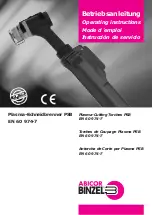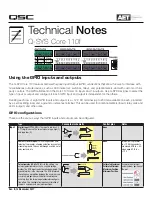
March 2008
"2047ES / 2647ES / 3247ES" Service & Parts Manual - CE Specifications
Page 2-4
BATTERIES
CHARGING BATTERIES CREATE EXPLOSIVE HYDROGEN GAS.
KEEP SPARKS, FLAMES AND SMOKING MATERIALS AWAY FROM
BATTERIES.
ALWAYS WEAR SAFETY GLASSES WHEN WORKING WITH
BATTERIES.
BATTERY FLUID IS CORROSIVE. THOROUGHLY RINSE SPILLED
FLUID WITH CLEAN WATER.
REPLACE WITH MANUFACTURER APPROVED BATTERIES.
BEFORE DISCONNECTING THE BATTERY NEGATIVE (–) LEAD,
MAKE SURE THAT ALL SWITCHES ARE OFF. IF ON, A SPARK WILL
OCCUR AT THE GROUND TERMINAL THAT COULD IGNITE
HYDROGEN GAS OR FUEL VAPORS.
Four (4), 6 volt batteries supply the 24 volt electrical power required to operate the electrical
circuits.
One (1) 12 volt battery supplies power to operate the Emergency Lowering circuit for the 3247ES.
Battery Maintenance (in storage)
Follow these procedures for maintenance of battery on a machine not in use:
•
Keep battery clean. Electrolyte of “wet” batteries should be checked regularly and kept at
proper level.
•
Never stack one battery directly on top of another because post or container damage can
result. If batteries are stored individually, place supporting boards between layers. Rotate
stock so that oldest batteries are used first.
•
“Wet” batteries should be kept fully charged. A “wet” battery, while in storage, should be
recharged to full charge at recommended intervals. Leaving the MEC charger connected
during prolonged storage will maintain battery voltage automatically.
A battery fully (100 %) charged at 80 °F (26.6 °C)
- drops to 65 % at 32 °F (0 °C)
- drops to 40 % at 0 °F (–32 °C)
Recommended Intervals
If Stored At:
Recharge:
Below 40 °F (4 °C)
None required
Above 60 °F (15 °C)
Every month
40 ° - 60 °F (4 ° - 15 °C)
Every 2 months
















































